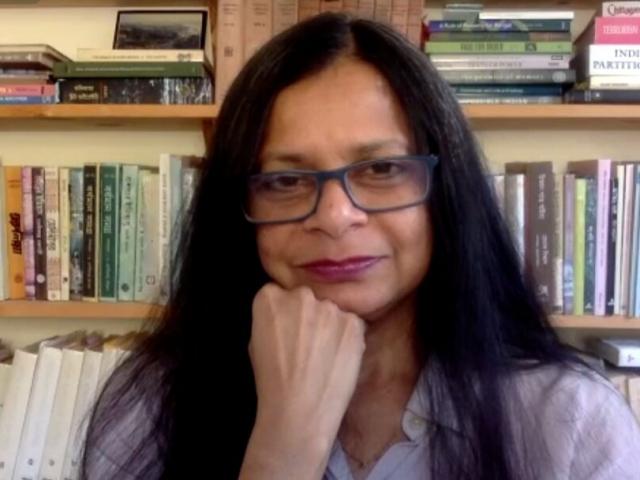Meet CCS Associate Dean Swati Chattopadhyay
Chattopadhyay reflects on her first year (2021-2022) as an associate dean at the College of Creative Studies

CCS: How did you find out about and get involved with the College of Creative Studies (CCS)?
Swati Chattopadhyay (SC): I was asked to serve as associate dean, particularly responsible for faculty personnel cases.
CCS: What did you know about CCS before joining the College and have you had any personal or educational experiences that are similar to CCS?
SC: I have been on campus for over 24 years. So of course knew about CCS—that is about its special place on campus—but I had no previous involvement with the college prior to last year. I did a undergraduate professional degree in architecture at an engineering college (Jadavpur University in Kolkata) where class sizes were small—the size of my cohort was 15—and we had dedicated studio/work space for each student. This was state-supported education and highly selective. It gave me and my fellow students a great opportunity to work and enjoy the educational experience as colearners—induced a sense of camaraderie that large class sizes cannot bestow. Looking back, we learned much more from each other and from our immediate seniors and juniors (with such class size you knew everyone 5 years senior and 5 years junior!) than we did from the faculty. We undertook collaborative research projects independent of class assignments and that’s how I think I got hooked on to field research, which to this day I consider my strong suit. This was the experience I would again find in grad school. It is this kind of research experience I believe CCS makes possible.
CCS: As stated in the eNotes Dean’s message, the campus is hosting a planning study for a potential new CCS building. You were part of the initial committee for this study and part of the search committee to hire an architectural firm. How have your architectural background and interests influenced your participation on this committee?
SC: I think of CCS as a space—a venue—for multidisciplinary/cross-disciplinary undergraduate research. So there is much room for innovation in the space programming, but it is also challenging. And the existing building, modest as it is, has a character, which I think the architects recognize. So I am keen to see how the architects imagine the college as a shared space of learning, particularly given what we have learned from the COVID experience about open space vs closed space, etc., about the effects of the contraction and expansion of social space. When I was working as an architect in New Delhi many moons ago I participated in the design of several university and other institutional buildings. So of my work at CCS this committee service is the closest to my expertise! I am looking forward to the next stages of the planning and design.
CCS: How has your experience as Associate Dean been shaped by the pandemic?
SC: Since I have mostly worked remotely during my tenure at CCS (visited the CCS building exactly 4 times), I have only a slightly distanced sense of the personnel here, except the few faculty and staff whom I had known previously. It has also showed that some aspects of my administrative task, such as meetings, are viable with a remote format, something I cannot say for most teaching.
CCS: Do any moments stand out during your first year as Associate Dean of CCS?
SC: Yes, the beginning of the year “open house” for students! After prolonged isolation it was wonderful to see so many students—some obviously returning to friends and others finding new colleagues—in the open space in front of the CCS building was delightful! This is what a college experience should be like!